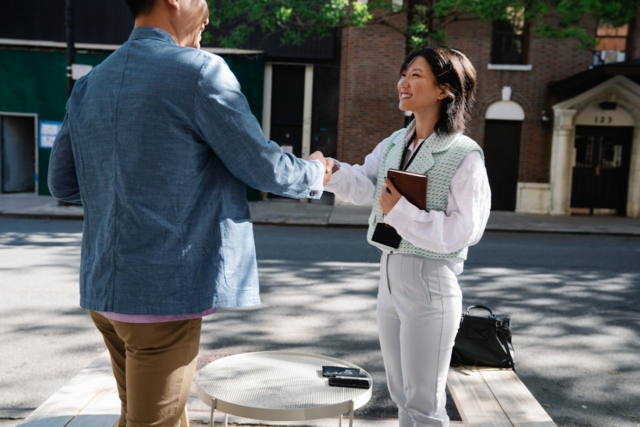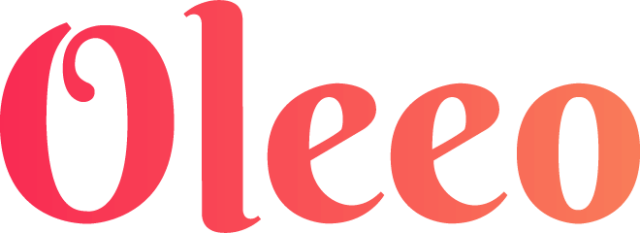Insights into Campus Recruiting in Virtual Times

One of the biggest challenges for Campus Recruitment during this coronavirus pandemic has been finding new ways to attract, engage, and hire young talent at a time where remote working has become the necessary norm.
Recently I interviewed two leaders in the student recruiting space to understand how Covid-19 has impacted and re-shaped campus recruiting, internship goals and overall strategies. Joanna Walker, Head of US Campus Recruitment, Vice President, Human Resources at Evercore – a premier global independent investment banking advisory firm – and Gemma Elsen, Global Head of Early Careers at Fidelity International – specialists in world class investment solutions and retirement expertise – joined me for a virtual round table to explore new ways of working and helping future leaders succeed in challenging times. Here are some highlights and key takeaways from our conversation.
Before I asked Joanna & Gemma for their thoughts, I was really interested to understand how the audience was approaching campus recruiting in these changed circumstances. Not surprisingly, 60% of attendees saw a slowdown in campus recruiting. Interestingly only 20% were continuing at the same pace, while the remaining 20% had stopped altogether. I was curious to see how that resonated with Joanna and Gemma.
Gemma said the past has helped to shape strategies even if there has to be some slowdown. “Lots of lessons were learned from the 2008 downturn. Staying connected to the business needs and learning from mistakes in the past is crucial. If you stop developing your Talent Pipeline completely, the recruitment process will be more expensive and time intensive when we start to move out of austerity. For us, constant communications with business leaders meant we could host more digital engagement at an accelerated pace.”
Joanna added: “We continue to have to hire. Investment banks need student talent — both undergraduates and MBA levels — but this needs to be done at responsible levels. Virtual Recruiting has become our future at least in the short term. Naturally we prefer in-person interactions, but, given the changes, there are responsibilities as a business to adapt. What is crucial is more frequent engagement — with initiatives like networking opportunities and hosted panel sessions or educational events.”
The Intern Conundrum
Some of the earliest students who have had to adapt to the new normals are interns, just starting their first business placement in the middle of the pandemic. Many firms have generated headlines for running these programs completely virtually and I wanted to understand what our audience had chosen to do.
Responding to a quick poll, half of our virtual roundtable attendees said they had continued intern programs at the same level as before. Not surprising none had increased. However, around a third (31%) had reduced the scope of their activities, and the remaining 19% had opted to cancel intern programs altogether.
Evercore reduced their program. Joanna explained: “Interns were top of mind when lockdown began in March: we needed to create something with the best way forward in mind. It took a lot of conversations internally to determine how to do this best, eventually reaching an agreement to run virtual programs, though reduced from 10 to 7 weeks. With this in mind, it’s vital to be as prepared as we could to ensure they were meaningful experiences for the students.
“We have extended the training period from 4 to 8 days to make sure that the interns are prepared and feel more experienced before they “hit the desk” virtually and are staffed on live projects. Communicating internship program expectations to teams and staffers was essential to ensure our interns got the apprentice based learning experiences day to day (virtually). Putting together peer leader groups of small cohorts in the class allowed them to interact more informally with bankers at different levels ensuring they met more people at the firm.”
Fidelity also reduced the intern program length from 12 weeks to 10, with two of the weeks dedicated to training. Gemma remarked: “Employers really need to be aware of the need to provide authentic experiences even if virtual, ones that are assessed fairly and are highly engaging at every step. We’ve adopted the L&D philosophy of mixing work with support networks and placing an emphasis on mentors and buddy schemes. We’ve also put in place multiple touch points to feed into assessments – it isn’t just a heavy focus on a line manager assessment of project work, we also plan to host portfolio manager virtual coffees for example.
“Performance, behaviours and cultural fit are just as important as they are in the office. Virtualization is a learning journey for everyone and the firm wants to get the right outcomes. Our approach has been to make these intensive and authentic experiences, seeking to replicate sticky moments that you get face-to-face virtually like becoming buddies with the person virtually sitting next to you or speed networking on an online basis. to mingle with peers.”
Embracing New Tech
A key part to successfully running programs for new hires is embracing new technologies that for many, are becoming part of day-to-day life under quarantine rules.
Joanna says: “There is so much tech out there and lots of cool tools that are bound to come up. We are using an online meetings tool for training. The biggest challenges come from striving to ensure connectivity throughout. We host virtual chats and video calls from time to time and offered a pre-intern panel day to reduce anxiety and resolve connectivity woes. In lieu of the many social events we host each summer, we provided a robust set of virtual social events for interns such as trivia, scavenger hunts and happy hours. This was important so that interns would get to know each other as a class. We provided them with updated contact lists to allow them to buddy up and do personal meetings too where permitted.”
Gemma adds: “ There is a lot to learn from being virtual that we are striving to address. Interns may not own a laptop or may suffer from inadequate internet speeds. We now courier out laptops and dongles and continue to try to look at different ways to support them.” Campus recruiting
The lessons learned have also been key to identifying potential barriers for Diversity & Inclusion in future campus recruiting efforts.
Gemma stated: “There are still things to confirm for hiring for the next season which are unaddressed at the moment. For example, we understand that relying on video interviewing could be a barrier to some, and running a virtual assessment centre [or interview super day]will require transparent accessibility needs. These still need to be strategised. We are preparing more content around helping people through these processes, which is key to making sure all candidates are on level playing fields. Virtual reach is exponentially better, but it needs a social responsibility mindset.
Joanna agreed: “It’s tough to resolve, though — as technology evolves — it is starting to get easier. The technology access isn’t always there. In the US, we partner with multiple organizations to help get access to candidates. D&I is still very much top of mind. We are working hard to ensure candidates can easily access our processes.”
Transforming the campus event experience
A large chunk of the campus hiring season is spent out and about at career fairs and on-campus events. No question, it will be some time before these traditional models will be the norm again…if ever. So, what are the alternatives?
Before asking my panelists, I asked our audience what they were thinking. Almost all (90%) have decided to run virtual events in some capacity. Half said they would use meeting platforms (like Zoom, Microsoft Teams, GoToMeeting, Google Chat, etc) to do this and 30% would partner with a dedicated recruiting events platform.
Gemma remarked: “We are looking at more bespoke event models to target diverse talent pools which will see us hosting specific webinars, online coffee chats, panels, and so on. We haven’t fleshed out our strategy completely but do not foresee challenges with the business”
Joanna added: “Upcoming for us, the fall is typically our MBA hiring time. We usually value in-person interactions, though this looks unlikely this year. So for us, being more interactive will be key — from virtual coffee chats to breakouts.”
Key Takeaways
I ended the roundtable by asking Joanna and Gemma for their key takeaways and advice for campus recruiters.
Joanna said: “We need to do more incredible things to make everything virtual end to end — be nimble, flexible, creative. Get ideas from your existing talent to imitate best practices and break the mold of your industries. Nothing is ever perfect but ideas really help.”
Gemma added: “Communication is key. Be more cognisant on factors like frequency, platform types, engagement types. Over communicate with teams to support them and make them feel part of a team despite being in different locations — communicate, communicate, and communicate a bit more!”
A huge thank you to Joanna and Gemma for taking time sharing their experiences – and to the audience for participating in the polls. It was super helpful to hear how everyone is addressing today’s unusual challenges. The full recording is embedded below if you want to check it out and I hope you can join us at future webinars. Keep an eye on Oleeo events for more information.



